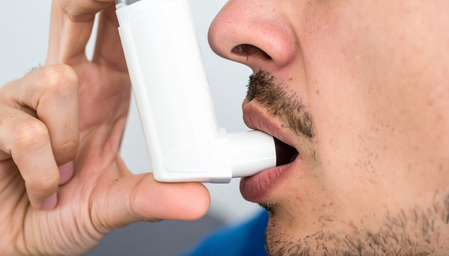New Delhi, Aug 30 (IANS) — Certain components of fine particulate air pollution (PM2.5)—particularly metals like nickel and vanadium, along with sulphate particles—can aggravate asthma and increase the risk of hospitalisation, according to a new study.
The findings, published in the American Journal of Respiratory and Critical Care Medicine, show that with every decile increase in this pollutant mixture, asthma-related hospitalisations rose 10.6% among children and 8% among adults aged 19–64.
Researchers found that nickel, vanadium, sulphate, nitrate, bromine, and ammonium contributed most significantly to the risk.
“If we want to reduce asthma hospitalisations, these are the sources that need to be better controlled — which we know how to do,” said Joel Schwartz, professor of environmental epidemiology at Harvard T.H. Chan School of Public Health. He explained that nickel and vanadium are by-products of burning fuel oils, while sulphates come from coal combustion. Solutions include installing scrubbers on coal plants, shifting to cleaner fuels, and removing metal contaminants from heating oil.
Unlike earlier studies that focused on single pollutants or PM2.5 as a whole, this research used machine learning and prior data to pinpoint the harmful compounds. These included bromine, calcium, copper, elemental carbon, iron, potassium, ammonium, nickel, nitrate, organic carbon, lead, silicon, sulphate, vanadium, and zinc.
The analysis covered 469,005 asthma hospitalisations, controlling for outdoor temperature and socioeconomic status. Using a weighted quantile sum regression model, the team quantified how each compound in the PM2.5 mixture contributed to health risks.
The researchers noted that more studies are needed to assess how short-term exposure to specific particles in PM2.5 impacts asthma severity.










